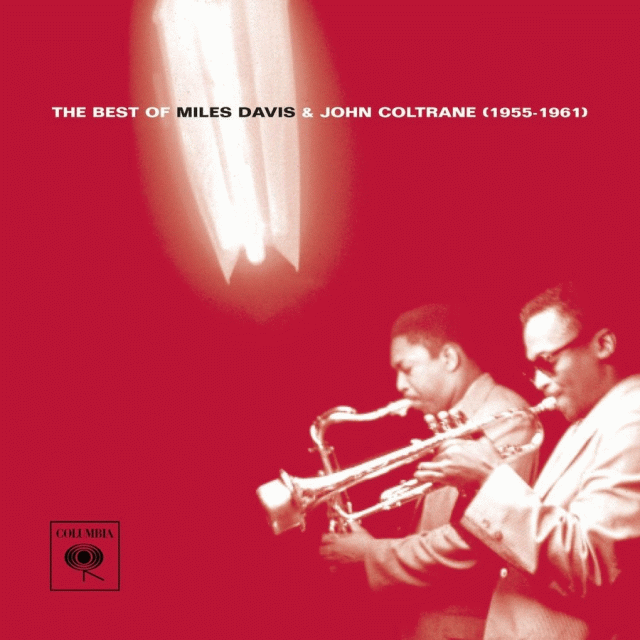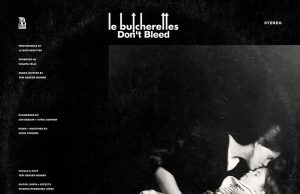Two decades ago, new albums from Miles Davis and John Coltrane, Lou Reed, Dido and others were spinning away in my portable CD player. Here’s what I had to say about them back then (with some minor editing):
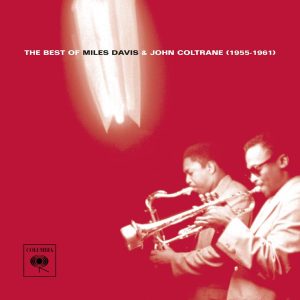 Miles Davis & John Coltrane
Miles Davis & John Coltrane
The Complete Columbia Recordings 1955-1961
Trying to measure the impact Miles Davis and John Coltrane made on jazz is like trying to gauge the effect The Beatles had on pop music. Like the Fab Four, trumpeter Davis and tenor sax monster Coltrane practically reinvented their musical genre from the ground up — not just once, but several times. They did it in an equally remarkable space of time — a little less than four years, give or take. And like The Beatles, their influence spread far beyond their chosen oeuvre into every corner of music, leaving them revered as gods ever since.
Of course, back in 1955, when 29-year-old sax player Coltrane joined Davis, bassist Paul Chambers, pianist Red Garland and drummer Philly Joe Jones to form the legendary Miles Davis Quintet, nobody knew a musical revolution was just around the corner. Not even Miles. In his autobiography, he admits that at first, he “wasn’t excited” by Coltrane. He wasn’t alone; Coltrane’s idiosyncratic style and unusually caustic tone turned off many. Davis himself, despite making a splash with his stint in Charlie Parker’s band and forward-thinking Birth of the Cool album, wasn’t exactly in the catbird seat either, having just shaken off a debilitating drug addiction. Few predicted much from Davis and Coltrane. It didn’t take them long to prove everybody wrong — including Davis. “Faster than I could have imagined,” he said, “the music we were playing together was just unbelievable … it used to send chills through me at night and it did the same thing to the audiences.”
The magnificent new box set The Complete Columbia Recordings — without a doubt the ultimate chronicle to date of Davis and Coltrane’s partnership — will likely have the same effect on you. Spread out over six hours and CDs, its 58 tracks (including 18 previously unissued takes) are a virtual diary of the dynamic duo’s ground-breaking pairing, presented in fastidiously chronological order. First, you hear the month-old outfit trying to find its feet on its premiere recording session, bopping through standards like Dizzy Gillespie’s Two Bass Hit and Bird’s Ah-Leu-Cha. Then you hear them progress to ‘Round Midnight, gradually pushing the envelope with their audacious arrangements and stellar technique. And finally, you hear them shred that envelope on Milestones, where Davis revolutionized jazz by ditching harmonic-based improvisation for modal formats — playing around scales instead of chords — in a move that opened the door for everyone from free-jazz explorers like Return to Forever to post-rock innovators like Tortoise. Most importantly, you get to hear Davis and ‘Trane grow from formidable journeymen into undisputed geniuses. As Miles gains his confidence as a composer and bandleader, his sound gradually becomes leaner and meaner, evolving into the muted, vibrato-free tone that became his trademark. Likewise, by the end of his tenure with the band, Coltrane has begun to find his own voice — the howling “sheets of sound” that he went on to explore on his pioneering solo albums.
Despite those later achievements, however, these are arguably some of their finest musical moments — captured on the classic albums ‘Round About Midnight, Milestones and Kind of Blue, remixed and remastered here from the original tapes and reproduced here in their entirety. (Milestones, previously available in mono or enhanced stereo, is issued here in true stereo for the first time.) Along with that, the bitchin’ red-metal box contains a 116-page booklet bulging with anecdotes, photos and obsessive detail; 90 minutes of newly released music, including outtakes, snippets of studio dialogue with Davis talking in his Tom Waits rasp (the permanent result of yelling too soon after throat surgery); and two smoking live shows taped in 1958 at the Newport Jazz Festival and New York’s swanky Plaza Hotel. If all that doesn’t send a shiver down your spine, I don’t know what would.
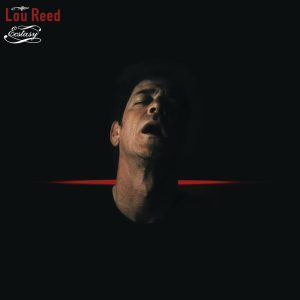 Lou Reed
Lou Reed
Ecstasy
For a guy who’s written so many great songs — Sweet Jane, Walk on the Wild Side, Heroin, I’m Waiting for the Man, White Light/White Heat, and that’s just for starters — Lou Reed sure has trouble with albums. In the decades since he fled The Velvet Underground, he’s produced one indisputable rock classic (Transformer), a couple of notorious outliers (Metal Machine Music, Berlin) and dozens of mixed-bag releases people either love or hate. His 27th album Ecstasy, a strange, black-hearted rumination on love gone sour, could go either way. Leadoff track Paranoia Key of E, with its choppy guitar riff and horny vamp, is one of Reed’s best rockers in a decade. Even some of the downbeat pieces, like the bossa nova jazz of the title track, recall the tenebrous beauty of Street Hassle or Wild Side. Then there’s Like a Possum — an 18-minute free-form blues dirge about how Lou is, well, like a possum. And he wonders why some folks hate him. Bottom line: Ecstasy generates a pretty good buzz at times, but it’s no Heroin.
 Dido
Dido
No Angel
Released in the U.S. last year, this charming chanteuse’s debut disc quickly turned her into a critics’ darling. No wonder. In the poker game of fame and critical acclaim, Dido Armstrong would seem to have all the cards: She has the earthy vibe of Jewel, the divine pipes of Sarah McLachlan, and a knack for swirly, trip-hop dreamscapes that would slot precisely between Beth Orton and Portishead on a mix tape. And while this disc’s dozen mellow-pop offerings sometimes might sound just a little too much like all those artists above and not enough like herself, so far it hasn’t done her any harm — one of her tracks made it on to last year’s Lilith Fair compilation and another is the theme song to alienated teen drama Roswell. Dido may be no angel, but she’s certainly been blessed.
 Pink
Pink
Can’t Take Me Home
Based on her vibrant handle — which matches her hair colour — you’d expect this neophyte singer’s music to be equally colourful. Instead, most of what this magenta-topped Philly vocalist has to offer is cliche hip-hop / R&B crossover fare, with slinky-slow grooves, sultry melodies, lightly bumping beatbox rhythms and pointless overproduction to try to make up for so-so songwriting. On the plus side, Pink’s voice is a sweetly soaring soprano and she has plenty of attitude. Too bad she doesn’t do anything with it that you haven’t heard on other divas’ discs this year.
 P.O.D.
P.O.D.
Fundamental Elements Of Southtown
There was a time when Christian rock was ruled by one band — Stryper, the ’80s hair-metal outfit that dressed in bumblebee colours, praised His name in cheese-metal epics like To Hell With the Devil and tossed Bibles from the stage. Now, however, the religious rock ranks are multiplying like loaves and fishes. And they’re more subtle about how they spread the good word via the devil’s music. Take San Diego’s P.O.D. (Payable on Death). Unless you key into to the inspirational lyrics (“In His glory, we will rise”), you’d never knows these rap-metal maniacs are out to save your soul; they’re too busy trying to crush your skull with the furious, Korn-like thrash and bludgeon of tunes like Southtown and a cover of U2’s Bullet the Blue Sky. Guess it’s true: If you wanna get to heaven, you’ve gotta raise a little hell.
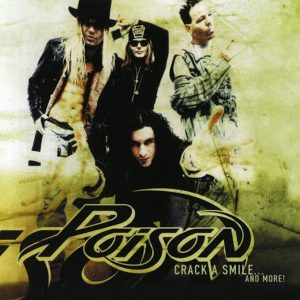 Poison
Poison
Crack A Smile … & More
Frankly, I’m not sure which is more surprising — the fact that there’s a new Poison album in stores, or that it’s actually not that bad. Maybe that’s because it’s actually not that new. Crack a Smile was recorded back in 1994, but Poison’s hair-metal harlotry didn’t make the cut back in the days of grunge, heroin chic and gloomy alt-rock. Now that Kurt is dead and Poison are reunited, however, this long-lost bootleggers’ fave is seeing the light of day, augmented with B-sides, outtakes and acoustic versions of their hits from MTV Unplugged. And ashamed as you may be to admit it, Bret and the boys’ decadent sleaze-pop (sinful slam of Sexual Thing), cheesy balladry (an acoustic version of Every Rose Has Its Thorn) and rock-star posturing (a drunken, metal-flake version of Cover of the Rolling Stone) are an invigorating antidote to the overdose of teen-pop and rap-metal that’s currently killing music. Welcome back, C.C. — all is forgiven.
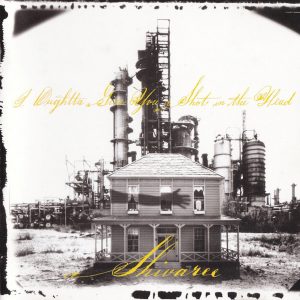 Shivaree
Shivaree
I Oughtta Give You A Shot In The Head For Making Me Live In This Dump
This candidate for Coolest Album Title of All Time comes from L.A. trio Shivaree, led by a singer/songwriter whose own handle is just as wonderfully improbable: Ambrosia Parsley. And just as the CD cover isn’t capable of holding the whole title, the divine Ms. Parsley’s abilities can barely be contained on this beguiling disc. With a delivery as intoxicating as her first name and a voice that has the husky slur of Sheryl Crow and Rickie Lee Jones’ little sister, Parsley — who swears that’s her real name — saunters through a Beckish, jury-rigged jungle gym of clanking folktronica, all of it imaginatively plinked, plonked and plucked by players whose resumes include stints with Tom Waits and Exene Cervenka. By the time you get past the seductive vibrato spy-jazz of Goodnight Moon, the junky funk of Pimp and the sweet sendoff of Arrivederci, you won’t care what her real name is.
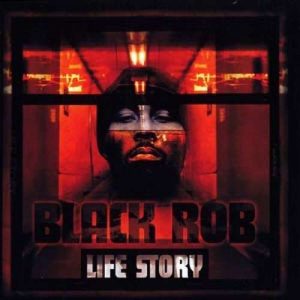 Black Rob
Black Rob
Life Story
Embattled Bad Boy bossman Sean (Puff Daddy) Combs apparently has big plans for his newest protege, rapper Black Rob. And he’s definitely keeping a close eye on his investment — not to mention stacking the deck to boost his return. For a virtually unknown, unremarkable talent, Black Rob’s 21-track debut disc has to be one of the most densely star-packed CDs of late. Of the 15 songs here, a full 13 feature guest appearances from everybody in Puffy’s Rolodex — Cheryl Pepsi Riley, Cee-Lo, Mark Curry, Mase, The Lox, and Mario Winans. Puffy himself joins in on three tracks. Even Jennifer Lopez shows up. In the end, there’s barely any room for Rob on his own album. Which may be for the best. Although he has the rhyme skills to pay the bills, with his thin voice and soft-spoken, blasé delivery — I suspect he’s trying to sound menacing, but it just comes out sleepy — Black Rob comes off more like Slack Rob. End of story.
 Da Brat
Da Brat
Unrestricted
Beauty and Da Brat? Believe it. After years of playing the tough homegirl in baggies and braids, Chi-town rhyme queen Da Brat dolls it up on her third CD, dropping a new look with enough curves, cleavage and crotch shots to make Li’l Kim and Foxy Brown seem like choirgirls. Thankfully, she stops short of giving her sound a similarly slick makeover. Still the roughest, toughest, trash-talkingest woman on the block, Brat also has the maddest skills. On these 17 bumptious tracks (mostly written and produced by Jermaine Dupri), she delivers her foul-mouthed raps in a slippery, Snoop-style slur — that is, when she isn’t going ballistic like Busta or tossing off motormouthed syncopations with enough firepower to singe Eminem. Brat may look like a lady, but she’s still one of the boys.
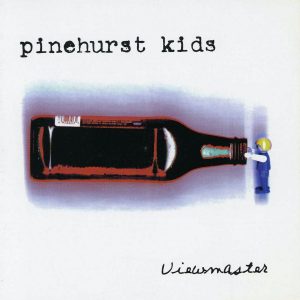 Pinehurst Kids
Pinehurst Kids
Viewmaster
Their name sounds like some sort of hillbilly sibling jug band, but Portland’s Pinehurst Kids are about as country as a skateboard park. Truth be told, this spunky, indie-rock trio has more in common with emo punks like Jimmy Eat World than Jimmie Rodgers. Singer-guitarist Joe Davis’s songs strike a balance between the noisy churn of punk and the tender melodies and penetrating lyrics of someone who doesn’t need to be shown the meaning of being lonely. And as he spits out all that angst in a fragile voice that recalls Superchunk, the other two Kids add plenty of urgent, driving backbeats to his jangly guitar riffs and big, ringing chords. “It’s a fine line between nice and dumb,” claims Davis. How he would know is anybody’s guess, since Pinehurst Kids seem to be one of the few bands around that manage to avoid being either.
 Tristan Psionic
Tristan Psionic
Mind The Gap
Actually, what they mean is don’t mind the gap — as in the four years it’s been since these Hamilton indie-rock entrepreneurs (they own their own label and distribution company) released an album. Mind? Shoot, judging by the sheer scale and scope of this third full-length offering, I’m surprised they got it together as fast as they did. Mind the Gap is a sprawling, multi-dimensional masterwork that finds the foursome confidently embracing and experimenting with a nearly endless array of styles. There’s laissez-faire space-rock majesty on 10-minute opening track Promise, chewy boogie on Helicopter, fiery popcore on Launch, sequencer-driven math-rock on instrumental The Move is Set, even overdriven Ted Nugent guitar-rock solos on Can’t Wait Forever. Forever? It’s bad enough we might have to wait four more years for another disc this ambitious and satisfying.
https://youtu.be/uHAv0uTzTCE
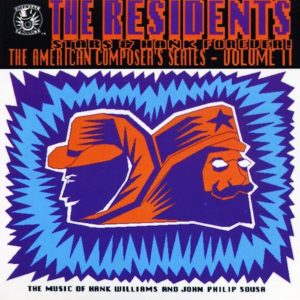
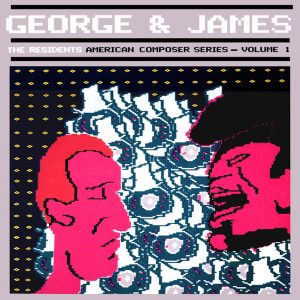
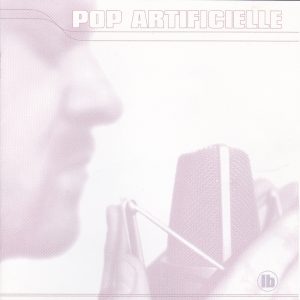 The Residents
The Residents
George & James / Stars & Hank Forever
LB
Pop Artificielle
With their anonymous giant-eyeball masks, multi-media performance-art aesthetic and primitively creepy, bleepy synth-noise sound, San Francisco’s much-beloved Residents live in their own weird little world. So naturally, when these true originals set out to honour some musical forefathers, the resulting discs — the newly reissued George & James and Stars & Hank Forever — weren’t your typical set of covers. On these delightfully skewed discs (released in the ’80s on vinyl as volumes 1 and 2 of The American Composers Series), the foursome bring their chilly, Pee-Wee’s Playhouse vibe to the works of James Brown, George Gershwin, Hank Williams and John Philip Sousa. If you can imagine alien robots trying to play Billie Jean while warbling country lyrics through Cher’s voice box, then you’ll love their stab at Kaw-liga. And that pales next to the Brown portion, which recreates Side 1 of Soul Brother No. 1’s seminal Live at the Apollo album — right down to the crowd noise and between-song banter — and teleports it to the Star Wars cantina. It’s perhaps the only disc ever made that could satisfy fans of both James Brown and The Residents — with the possible exception of German techno artist LB’s Pop Artificielle. I bet LB — aka Frankfurt’s Uwe Schmidt — has worn out his share of Residents discs, not to mention a few Kraftwerk albums. Here, he splits the difference, filtering 10 classic pop tunes through a similarly cracked filter of squishy beatboxes, squiggly synths and synthesized vocals. His cover of Brown’s Superbad may seem derivative, but unlike the icy Residents, LB really does have soul. His android-boogie takes on Donovan’s Sunshine Superman, ABC’s Be Near Me and David Bowie’s Ashes to Ashes all jive to a definite (if deformed) groove. The cream of this kooky crop, however, are the mesmerizing deconstructions of John Lennon’s Jealous Guy and The Rolling Stones’ Angie, which get stripped down to their raw nerve endings and rewired for life on Mars. He may call it artificielle, but it sure sounds like the real deal to me.
 J. Englishman
J. Englishman
Poor Li’l Rockstar
Poor li’l J. Englishman. If he were from New York or L.A., this disc — a winning batch of smartly written, stylishly produced modern pop-rockers — would be hyped in Spin and CMJ and he’d be playing for Conan and Dave. But since he’s from Toronto, he’ll probably have to make do with a blurb in Chart and a slot on Mike Bullard before he goes back to his barista gig. So if you want to hear this impressive debut from a talented singer-songwriter, you’ll have to seek it out on your own. And if you dig his style — which touches on everything from trip-folk balladry to industro-metal — well, rest assured you won’t have local radio ramming it down your throat until you get sick of it. So much for the life of a Canadian rockstar.
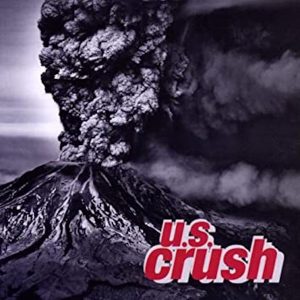 U.S. Crush
U.S. Crush
U.S. Crush
“I wanna destroy indie-rock snobs / Holier than thou with no taste at all,” complain SoCal modern rockers U.S. Crush on their self-titled debut. A little harsh, perhaps. But you can’t accuse these guys of calling the kettle black. It’s obvious from this 14-track offering that the boys in U.S. Crush have plenty of musical taste — and no qualms whatsoever about wearing it on their deliberately torn sleeves. From The Sex Pistols, they’ve borrowed the crunchy guitars and punky riffs of tracks like Debutante (basically a rewrite of Bodies); from power-popsters like Lit they’ve nicked zippy melodies and peppy harmonies; from R.E.M., singer Danny Lake swiped his phrasing and nasal sound; from Beck, they even nicked the song title Loser. But despite all these influences — and all the kinetic energy in these tracks — these guys can’t produce a spark. Five seconds after these songs end, you can’t remember what they sounded like. Better to be an indie-rock snob that an amnesia-rock mob.













